- Shiites, the Main Victims of Terrorism in Pakistan
- Iran Vows Decisive Response to Any Hostile Act: Army Chief
- Iran Will Never Agree to A Policy of Zero Uranium Enrichment Under Any Conditions
- Hungarian Prime Minister Viktor Orban Has Declared Ukraine to Be an Enemy
- FM Araghchi: Iran Is "Pursuing Diplomacy, But Ready for War"
- Iran’s Nuclear Stance Based on NPT Rights, Rejects Force
- Is Saudi Arabia Re-trying a Failed Project against Yemen’s Ansarullah?
- Iraq’s Govt. Formation in Deadlock as Kurds Wrestle over Post of President
- US Pursuing Own Agenda, not a Deal, behind Iran Negotiations: Expert
- US-Iran Talks Conclude in Muscat; Iranian FM Declares "Good Start"
Editor's Choice

Gen. Solemani, A Living Resistance Legacy General Solemani of Iran caused a transformation to the region that blocked the way of the Israeli and American projects in West Asia.
A Review of Newly Published US National Security Document The US national security document may be an unwanted admission that the US hegemony is diminishing.
US or Venezuela? Who’s the True Oil Thief? Trump says Venezuelan nationalization of its oil was theft of American oil companies’ assets, justifying oil blockade on South American nation.
Why Are Tel Aviv and Washington Stepping Up Pressures against Hezbollah? Israel knows that disarming Hezbollah makes occupation of Lebanon a piece of cake.
Is Yemen on the Verge of Split? The country is sinking in chaos as conflicting forces in the south are going separate ways and Yemenis are less involved in the fate of the south.
News
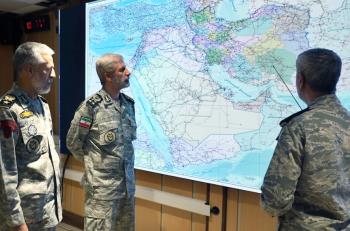
Iran Vows Decisive Response to Any Hostile Act: Army Chief
Iran’s senior military commander states that all adversarial movements are being closely monitoredIran Will Never Agree to A Policy of Zero Uranium Enrichment Under Any Conditions While Iran is open to building trust over its peaceful nuclear aims, it will never compromise on its right to enrich uranium domestically
Hungarian Prime Minister Viktor Orban Has Declared Ukraine to Be an Enemy Hungary’s Prime Minister Viktor Orban has called Ukraine an "enemy" in response to Kyiv’s demands that Hungary cease its purchases of Russian energy
FM Araghchi: Iran Is "Pursuing Diplomacy, But Ready for War" Foreign Minister Abbas Araghchi states that Iran has consistently followed diplomacy while remaining prepared for any conflict
Iran’s Nuclear Stance Based on NPT Rights, Rejects Force President Masoud Pezeshkian has welcomed the latest indirect nuclear negotiations with the US as a positive step forward
US-Iran Talks Conclude in Muscat; Iranian FM Declares "Good Start" Iranian Foreign Minister Abbas Araghchi characterized the latest indirect nuclear talks with the US in Muscat, Oman, as a good start
Iran: Missiles and Nuclear Enrichment Not Up for Debate Abbas Araghchi stated that uranium enrichment is an "inalienable right" and that the country’s missile program will not be discussed with the US
Araghchi Cautions Regional States That Israel’s ‘Doctrine of Impunity’ Endangers Regional Stability Foreign Minister Abbas Araghchi of Iran issued a warning that Israel’s perceived exemption from international law risks broader instability
Palestinians Detained by Israeli Forces in West Bank Operations Raids by Israeli forces in several West Bank towns and al-Quds led to the detention of multiple Palestinians and resulted in clashes
US to Drop India Tariffs Linked to Russia After Trade Deal In a move following a preliminary trade agreement, President Donald Trump has signed an executive order lifting a 25% tariff on Indian goods
"We Are in A Stage of Defense, Not Surrender," Stated Hezbollah’s Deputy Secretary-General Hezbollah chief Sheikh Naim Qassem says Israel is targeting all of Lebanon
Israeli Military Operations in Gaza Resume, Resulting in Three Fatalities and Fifteen Injuries Israeli forces have killed and wounded several Palestinians in Gaza as hostilities continue, despite a declared ceasefire
Iran’s Vice President Aref Has Proposed Raising the Trade Volume Between Iran and Oman to $5 Billion Iran’s First Vice President Mohammad Reza Aref has urged for a significant increase in bilateral trade with Oman
Armed Boats Challenge to Capture Vessel in Strait of Hormuz On Tuesday, Western media reported an attempted interception by armed boats of a vessel near Oman
China Urges Panama to Uphold Cooperation After Port Deal Setback China has warned Panama of "heavy prices" following a court’s annulment of a major port deal
Senior Officer Warns of Cognitive Warfare, Advises Youth Vigilance Rear Admiral Habibollah Sayyari, Deputy of Coordination for the Iranian Army, acknowledges a shift in Iran’s threats to cognitive and soft warfare
Instigating Acts of Violence May Lead to Potential Harm for The US And Its Allies The Iranian Chief of Staff of the Armed Forces has cautioned that any misstep by antagonists could provoke a regional crisis
Russian Muslims Voice Solidarity with Iran, Denounce US-Israeli Conspiracies Religious leaders and organizations within Russia’s Muslim community have individually conveyed their support for Iran and Ayatollah Seyyed Ali Khamenei
Islamic Revolution Based on Faith, Trust in People Per Judiciary Chief Gholamhossein Mohseni-Ejei, the Judiciary Chief, underlines that the Islamic Revolution is anchored in faith in God and trust in the people
Baghaei: Diplomatic Proceedings Details Under Discussion Regarding Iran’s negotiations with the US, Baghaei said discussions about specifics of a potential diplomatic process are ongoing
Most Viewed
Iran’s Nuclear Stance Based on NPT Rights, Rejects Force
Hungarian Prime Minister Viktor Orban Has Declared Ukraine to Be an Enemy
Iran Will Never Agree to A Policy of Zero Uranium Enrichment Under Any Conditions
FM Araghchi: Iran Is "Pursuing Diplomacy, But Ready for War"
Iran Vows Decisive Response to Any Hostile Act: Army Chief
Shiites, the Main Victims of Terrorism in Pakistan
Baghaei: Diplomatic Proceedings Details Under Discussion
Iran’s Vice President Aref Has Proposed Raising the Trade Volume Between Iran and Oman to $5 Billion
FM Araghchi: Iran Is "Pursuing Diplomacy, But Ready for War"
Iran Vows Decisive Response to Any Hostile Act: Army Chief
Russian Muslims Voice Solidarity with Iran, Denounce US-Israeli Conspiracies
Senior Officer Warns of Cognitive Warfare, Advises Youth Vigilance
Iraqi Resistance’s "Missile City" a Message of Resolve to the US
Is Saudi Arabia Re-trying a Failed Project against Yemen’s Ansarullah?
"We Are in A Stage of Defense, Not Surrender," Stated Hezbollah’s Deputy Secretary-General
Iran’s Nuclear Stance Based on NPT Rights, Rejects Force
Instigating Acts of Violence May Lead to Potential Harm for The US And Its Allies
US-Iran Talks Conclude in Muscat; Iranian FM Declares "Good Start"
Armed Boats Challenge to Capture Vessel in Strait of Hormuz
Araghchi Cautions Regional States That Israel’s ‘Doctrine of Impunity’ Endangers Regional Stability
Iraq’s Govt. Formation in Deadlock as Kurds Wrestle over Post of President
Larijani Refers to The Rioters in Iran as Quasi-terrorist Groups
Mass Arrests of Armed Protesters as Iranian Authorities Respond to Unrest
The Parliament Speaker Alleges That Enemies Aimed to Disintegrate Iran
Iranian Intelligence Forces Arrest Alleged Israeli Agent
Iranian Military Ready to Counter Threats: General Hatami
US Actions Against Iranians Under Scrutiny by Foreign Ministry
Mossad Actively Interfering in Iran’s Recent Events
Araghchi Slams WEF’s Ethical Decay from Hypocrisy and Double Standards
Iran Condemns Argentina’s Action Against the Islamic Revolutionary Guard Corps
Iranian Parliament Responds to Trump Rhetoric Against Leader of The Islamic Revolution
Foreign Interference in Iran Protests
Breaking the Ice: Iran’s Araghchi Visit to Beirut Signals New Chapter
The United Iranian Nation Will Conquer Any Challenge and Face Every Obstacle with Triumph
The Iranian People Demonstrated Their Solidarity as A Nation to The World on Monday
Rioters Damage Properties Including Public Infrastructure in Iran
In Focus

Ansarullah
A Zaidi Shiite movement operating in Yemen. It seeks to establish a democratic government in Yemen.
Shiite
represents the second largest denomination of Islam. Shiites believe Ali (peace be upon him) to be prophet"s successor in the Caliphate.
Resistance
Axis of Resistances refers to countries and movements with common political goal, i.e., resisting against Zionist regime, America and other western powers. Iran, Syria, Hezbollah in Lebanon, and Hamas in Palestine are considered as the Axis of Resistance.
Persian Gulf Cooperation Council
A regional political u n i o n consisting of Arab states of the Persian Gulf, except for Iraq.
Taliban
Taliban is a Sunni fundamentalist movement in Afghanistan. It was founded by Mohammed Omar in 1994.
Wahhabism & Extremism
Wahhabism is an extremist pseudo-Sunni movement, which labels non-Wahhabi Muslims as apostates thus paving the way for their bloodshed.
Kurds
Kurds are an ethnic group in the Middle East, mostly inhabiting a region, which spans adjacent parts of Iran, Iraq, Syria, and Turkey. They are an Iranian people and speak the Kurdish languages, which form a subgroup of the Northwestern Iranian branch of Iranian languages.
NATO
The North Atlantic Treaty Organization is an intergovernmental military alliance based on the North Atlantic Treaty which was signed on 4 April 1949.
Islamic Awakening
Refers to a revival of the Islam throughout the world, that began in 1979 by Iranian Revolution that established an Islamic republic.
Al-Qaeda
A militant Sunni organization founded by Osama bin Laden at some point between 1988 and 1989
New node

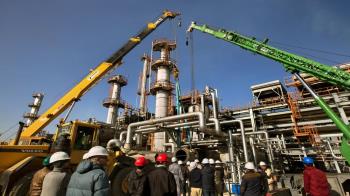
Analysis
Baghdad-Erbil Oil Exports Deal: From Home to Regional and International Geopolitical Impacts
Sunday 5 October 2025
Saddam Hussein's regime in 2003, Erbil began building its own energy infrastructure and started connecting oilfields to the Ceyhan pipeline via new links it constructed. This move allowed the semi-autonomous region to export oil largely independent of Baghdad.
This approach by the Kurds stirred ...

News
Shadow Man: What’s behind US Envoy’s Activism in Iraq?
Monday 10 November 2025
،
Saddam Hussein’s Baath regime, Sunnis enjoyed a privileged position, and many tribal leaders continue to blame Washington for their community’s current situation. Against this backdrop, Sawaya’s mission in Iraq is to rebuild Sunni trust and align them with US policies, a strategy a ...
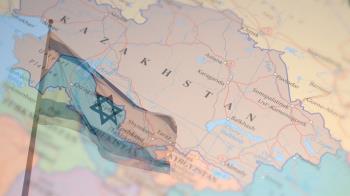
Analysis
Israel’s Creeping Influence in Central Asia a Threat to Iran’s Security Interests
Wednesday 12 November 2025
،
Saddam Hussein during the 1991 Persian Gulf War, Israel's past failures in engaging the Muslim world, and a general unfamiliarity with the region.
However, over time, these assumptions shifted. The primary catalyst for Israel's strategic reassessment was its confrontation with the Resistanc ...
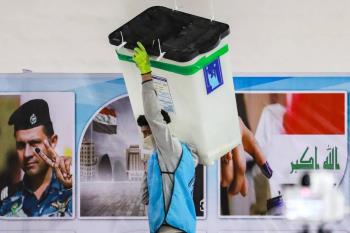
Paper
What Does High Iraq Election Turnout Mean?
Wednesday 12 November 2025
،
Saddam Hussein, reflecting a decline in public trust in the political system and growing popular disillusionment with the effectiveness of successive governments.
Accordingly, this report will examine the main reasons for the increased participation, its political and social consequences, including ...
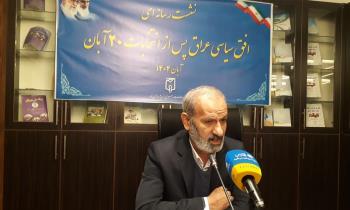
Report
Iraq Resistance Gained further Weight, US Failed Despite $2b Spending in Vote: Expert
Tuesday 18 November 2025
،
Saddam Hussein fell in 2003. These elections saw a rise in turnout rate after rounds of downward trend. The increase was reported 15 percent compared to the last election and it is expected that Iraqi election situation will influence the elections in other regional countries, and actually this incr ...
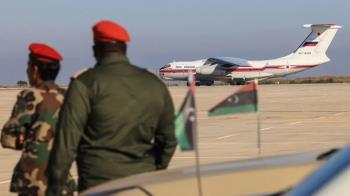
Analysis
How’s Southern Libya Become a Focal Point in New Russian Strategy?
Monday 29 December 2025
،
Saddam Haftar has been the focal point of these attempts to reduce the LNA's dependency on Russia.
In February 2024, the US flew two B-52H Stratofortress bombers into Libyan airspace for a joint exercise with LNA tactical air controllers. In April, the US Navy made its first port calls in Libya ...
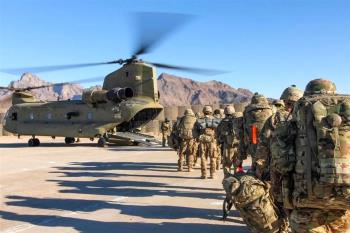
Analysis
What’s behind US Military Relocation from Ain Al-Assad to Al-Harir?
Tuesday 20 January 2026
،
Saddam Hussein’s rule in a desert region 160 kilometers west of Baghdad, the base was part of a five-base plan initiated in 1975 as a lesson learned from the Arab-Israeli conflict. Built by Yugoslavian state companies between 1981 and 1990 at a cost of $280 million, it was initially named al-Q ...
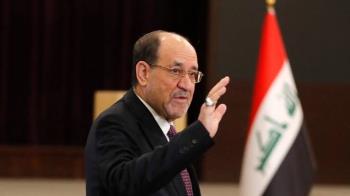
Report
Al-Maliki’s Comeback to Iraq’s PM Post
Sunday 25 January 2026
،
Saddam Hussein's regime in the early 1970s. After fleeing to Syria due from a death sentence, he moved to Iran in 1982, driven by ideological differences within the Syrian ruling part party, and subsequently returned to Syria. He also frequently traveled to Kurdistan to participate in opposition ...
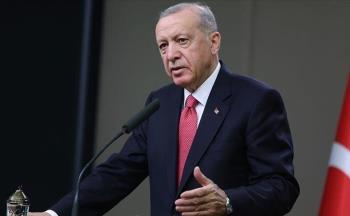
Analysis
The Bear’s Friendship: A Look at Recent Turkish Comments on Iran
Tuesday 27 January 2026
،
Saddam's war on Iran in the 1980s that is known in Iran as sacred defense, when it stood against the superpowers of the East and West and their regional allies, and in the recent 12-day Israeli war, where it demonstrated its deterrent power, stands as testament to this claim.
More important, ho ...
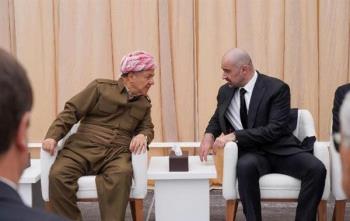
Analysis
Iraq’s Govt. Formation in Deadlock as Kurds Wrestle over Post of President
Saturday 7 February 2026
،
Saddam agreements, which granted the Iraqi presidency to the PUK in exchange for the presidency of the Kurdistan Region going to the KDP, have long lost their political validity. The Kurdistan Democratic Party, citing its greater number of seats in the Iraqi parliament, considers itself worthy of as ...










